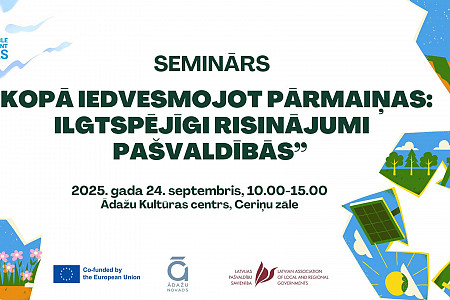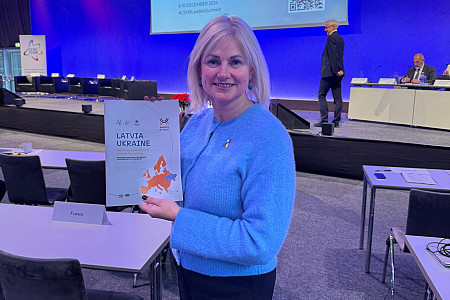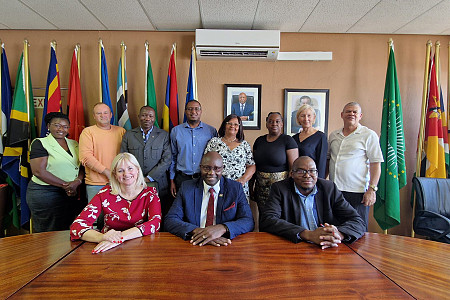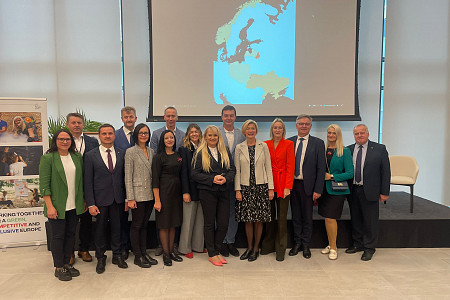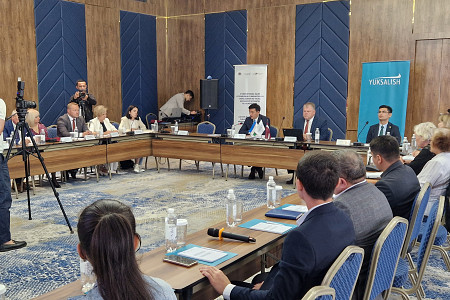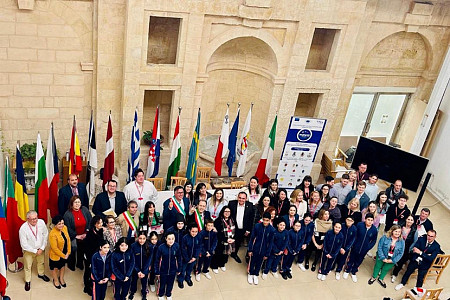On July 6, in Brussels (Belgium), the Latvian delegation to the European Committee of the Regions, during a meeting with the Deputy of the Permanent Representative of the Republic of Latvia to the European Union Mr Mārtiņš Kreits and the sectoral attachés, discussed issues relevant to local governments in connection with the revision of legislation on municipal wastewater treatment and air quality, as well as the European Green Course industrial plan.
Discussing the proposal for the revised directive on municipal wastewater treatment, the head of the Latvian delegation, Gints Kaminskis, emphasized in the conversation that it is very important to take into account three important things for municipalities: "We must pay special attention to three issues - financing, cost effectiveness and deadlines. Investment programming for 2021-2027 has been concluded, and funds from European Union funds are not available for this purpose. If additional funds, which could be at least 500 million euros, are not allocated to ensure the new requirements, then this will lead to a disproportionate increase in tariffs, exceeding the threshold of the cost of water management services identified by the World Bank as 4% of household income." Also, Kaminskis emphasized that the fulfilment of the requirements until 2030 is also disproportionate, because the expansion of networks will also be problematic - the construction process from the design to the conclusion of the construction in all agglomerations cannot be completed by 2030. The proposal of the directive envisages providing connection of residential houses to the centralized sewage system in all agglomerations of 1000 inhabitants by 2030. There are approximately 130 such agglomerations and more than 91,000 decentralized sewerage systems in Latvia.
Mr Mārtiņš Kreits, Deputy to the Permanent Representative of the Republic of Latvia to the European Union, confirmed that in the negotiations on the reviewed directive, representatives of the Latvian state argue about the cost effectiveness of implementing the new requirements. He also drew attention to the European Commission's requirement to build treatment plants as energy producers at the same time, sharing Latvia's position that such a requirement should not be mandatory in all cases, allowing for flexibility.
On the other hand, the Chairman of the Bauska Municipality Council, Mr Aivars Okmanis, drew attention to the fact that in the municipality he represents, work has begun on the development of the new territorial planning, and such new requirements and deadlines should be known in advance so that they can be taken into account in the planning.
Mārtiņš Kreits predicted that an agreement on the directive could be reached by April 2024. Advisor on environmental policy Ms Anna Popkova added that Latvia is not the only country in its position that has expressed concern about the proposals contained in the directive, both regarding the set deadlines and challenges, and is therefore working together with other member states on the argumentation on the provision of derogations.
At the meeting, the Latvian delegation in the European Committee of Regions was represented by its head, the chairman of the Latvian Association of Local and Regiona Governments Mr Gints Kaminskis, the Chairman of Bauska Municipality Council Mr Aivars Okmanis, the Councillor of Jēkabpils Municipality Council Mr Leonids Salcevičs, the Councillor of Riga City Council Mr Dainis Turlais, the Councillor of Cēsis Municipality Council Mr Hardijs Vents, the Chairman of Ventspils City Council Mr Jānis Vītoliņš and the Chairman of Saldus Municipality Council Mr Māris Zusts.


